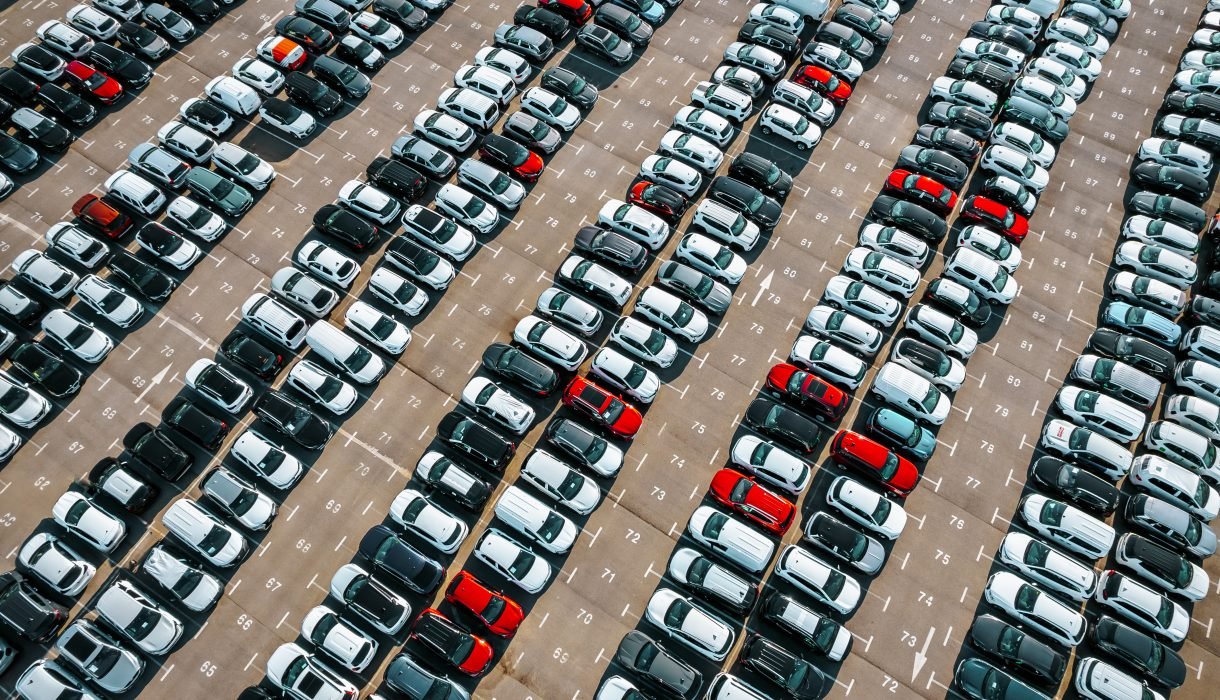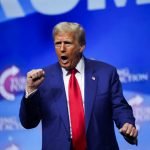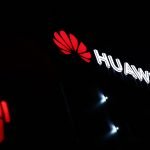
The White House says tariffs won’t make car buying more expensive. Top automakers don’t sound as sure.
Posted in :
The White House claims tariffs won’t raise car prices, but top automakers like GM, Toyota, and Ford disagree. With projected tariff burdens of up to $12,000 per vehicle and increased consumer urgency, the real impact of tariffs is already reshaping the auto market.
The conflicting statements regarding tariffs and their potential impact on car prices, detailing insights from top automakers like Ford, GM, Toyota, and Hyundai amidst consumer skepticism.
As consumers eagerly navigate the auto market in search of their next vehicle, the White House insists that tariffs won’t raise prices. However, varying statements from major automakers suggest a more complicated reality. Merging economic theories with real-world effects, this post delves into the nuanced discussions surrounding tariffs and their expected impact on American car buyers.
The White House says tariffs won’t make car buying more expensive. Top automakers don’t sound as sure.
Conflicting Perspectives on Tariff Impact
The debate surrounding tariffs on automobiles is heating up. On one side, the White House expresses optimism. On the other, major automakers voice their concerns. This divide raises questions about the real impact of tariffs on car prices.
White House Optimism vs. Automaker Concerns
Recently, Stephen Miller, the White House deputy chief of staff, made a bold claim. He stated that Americans would not face higher car prices due to tariffs. Miller argued that President Trump’s trade policies have created a strong economic incentive for automakers to boost production in the U.S. He said,
“Economic incentive for producers to expand production in the US is substantial.”
However, this optimism is not universally shared. Many automotive executives are skeptical. For instance, Ford’s CEO, Jim Farley, was cautious when asked if consumers would see price increases. He responded, “No, I’m not saying that.” This indicates a lack of confidence in the White House’s assurances.
Economic Incentives for Local Production
According to Miller, the tariffs are designed to encourage automakers to manufacture more vehicles in the U.S. This, he claims, would eliminate tariff costs on domestically produced cars. But is this really the case?
- Stephen Miller believes tariffs will not affect car prices.
- He emphasizes the economic incentives for local production.
- However, automakers express doubts about these claims.
For many consumers, the skepticism is palpable. Dealers report a surge in demand as buyers rush to lock in deals before potential price hikes. This behavior suggests that consumers are not entirely convinced by the White House’s assurances.
Automakers’ Responses
Automakers are voicing their concerns about the potential financial impact of tariffs. General Motors (GM) CEO Mary Barra has estimated that tariffs could cost the company up to $5 billion. She stated that GM would strive to remain competitive, but did not guarantee that prices would remain stable. Instead, she noted that pricing in the auto industry fluctuates frequently.
Similarly, Toyota, the second-largest automaker in the U.S., is also feeling the pressure. A report from UBS Securities indicated that tariffs could cost Japan’s five largest automakers around $25 billion annually, with Toyota bearing the brunt of this burden.
Ford’s Jim Farley echoed the uncertainty. He mentioned that he could not promise consumers would not face price increases. Instead, he announced an extension of Ford’s employee pricing promotion, which allows consumers to purchase vehicles at reduced rates. This move suggests that Ford is preparing for potential price changes.
Hyundai’s CEO, Jose Muñoz, expressed a more tempered view. He stated that he does not expect significant price increases overnight. However, he acknowledged that the market would ultimately dictate pricing. This indicates a cautious optimism, but also a recognition of the potential for change.
Consumer Feedback and Dealer Reports
Real-life consumer feedback adds another layer to this discussion. Many potential buyers are anxious about the future. Patrick L. Anderson, CEO of the Anderson Economic Group, advised consumers to act quickly. He suggested that if someone finds a car they like, they should buy it immediately. His reasoning? The uncertainty surrounding tariffs could lead to price increases in the near future.
Anderson’s firm estimates that even the least affected vehicles could see a tariff burden exceeding $2,000. Some vehicles might face burdens as high as $12,000, depending on their assembly location and the percentage of American-made parts. This data underscores the complexity of the situation.
In contrast, Honda’s global executive vice president, Shinji Aoyama, warned that a 25% tariff could cost the company a staggering $132.7 billion. This figure illustrates the stakes involved for automakers and their consumers.
The conflicting perspectives on tariff impacts create a complex landscape for consumers and automakers alike. While the White House remains optimistic, major automotive executives express skepticism. As the situation unfolds, it remains to be seen how these tariffs will ultimately affect car prices and consumer behavior.
The White House says tariffs won’t make car buying more expensive. Top automakers don’t sound as sure.
Insights from Automakers on Tariffs
As the automotive industry navigates the complexities of tariffs, major players like Ford, GM, Toyota, and Hyundai are voicing their thoughts. The White House has assured consumers that tariffs won’t lead to higher car prices. However, the automakers themselves are expressing a different sentiment. They seem less confident about maintaining current pricing structures.
Ford’s Perspective
Ford’s CEO, Jim Farley, recently stated that he couldn’t guarantee that consumers wouldn’t face price hikes. This statement raises eyebrows. If the leader of one of the largest automakers in the U.S. isn’t certain, what does that mean for consumers? Farley emphasized that Ford is extending its employee pricing promotion through July 4, but he refrained from making promises about future pricing.
- Farley’s uncertainty reflects the broader industry concerns.
- Consumers may need to brace for potential price changes.
General Motors’ Stance
General Motors (GM) is also feeling the pressure. CEO Mary Bara has indicated that tariffs could cost the company up to $5 billion. Despite this, she maintains that GM will “stay competitive.” Bara noted,
“We’re responding to the market to remain competitive.”
This statement underscores GM’s commitment to keeping prices stable, but it also hints at the challenges they face.
- GM aims to maintain strong pricing and low incentives.
- Bara mentioned that pricing in the auto industry changes frequently.
Toyota’s Position
Toyota, the world’s largest automaker, is significantly exposed to tariffs. A UBS Securities report estimated that the five largest Japanese automakers could face a $25 billion annual cost due to tariffs, with Toyota bearing a large portion. However, recent reports suggest that Toyota does not plan to raise prices in response to these tariffs. This could be a strategic move to maintain its market position.
- Tariffs could impact Toyota’s pricing strategy.
- Maintaining prices may help retain customer loyalty.
Hyundai’s Outlook
Hyundai’s CEO, Jose Muñoz, has expressed a more optimistic view. He stated that he doesn’t expect to see a significant price increase overnight. Muñoz believes that the market will ultimately dictate pricing. He also pointed out that price increases would likely not affect lower-cost entry-model vehicles, as those customers are particularly price-sensitive.
- Hyundai aims to keep prices steady.
- Lower-cost models are crucial for maintaining customer base.
Consumer Reactions to Potential Price Changes
Consumer sentiment is a crucial factor in this equation. Many buyers are skeptical about the White House’s assurances. Reports indicate a surge in demand as customers rush to lock in deals before any potential price hikes. This behavior suggests that consumers are not entirely convinced that they won’t be affected by tariffs.
- Dealers are witnessing increased demand as consumers act quickly.
- Many buyers are trying to secure favorable pricing before changes occur.
The Contrast Between Perceived Risks and Market Realities
While the White House insists that tariffs won’t impact car prices, the reality is more nuanced. Economists are not as confident. For instance, the Anderson Economic Group estimates that even the least impacted vehicles could see tariff burdens exceeding $2,000. Some vehicles may face burdens as high as $12,000. This discrepancy raises questions about the actual impact of tariffs on pricing.
- Estimates vary based on vehicle assembly and parts origin.
- Consumers are advised to act quickly if they find a vehicle they like.
In summary, the automotive industry is grappling with the implications of tariffs. While the White House claims that consumers won’t feel the pinch, major automakers are more cautious. They acknowledge the potential for price increases and are adapting their strategies accordingly. As the market evolves, both consumers and automakers will need to stay vigilant.
Consumer Sentiment: A Real-World Perspective
In today’s uncertain market, consumer sentiment regarding car purchases is a complex and evolving issue. Many potential buyers are hesitating, caught between fear of rising prices and the desire to secure a good deal. This hesitation is not just a personal dilemma; it reflects broader economic trends and market dynamics.
Analysis of Consumer Hesitation
Why are consumers hesitant to make a car purchase? The answer lies in the current economic climate. With tariffs looming over the automotive industry, many buyers are concerned about potential price increases. The fear of paying more for a vehicle is palpable. As Patrick L. Anderson, a leading economic consultant, advises, “If you find a car you like, buy it right away!” This advice underscores the urgency felt by many consumers.
Dealerships are witnessing this surge in demand firsthand. Many customers are rushing to lock in deals before any potential price hikes take effect. This rush indicates a growing sentiment driven by both fear and opportunity. Consumers are not just passive observers; they are actively responding to the market’s uncertainties.
Feedback from Dealerships on Market Demand
Dealerships across the country are reporting a notable increase in inquiries and sales. They are seeing customers who are eager to make a purchase, fearing that waiting could lead to higher costs. This trend is particularly evident among those looking for new vehicles. The urgency is palpable, as buyers want to avoid the potential tariff burdens that could add thousands to the price of a car.
According to reports, the estimated tariff burdens could range from $2,000 to $12,000 on certain vehicles. This significant financial impact is causing many consumers to act quickly. The automotive market is experiencing a unique moment where demand is surging, but the underlying fears of tariffs create a paradox. Consumers want to buy, yet they are wary of the future.
Comparison of Consumer Sentiments with Economists’ Assessments
While consumers are feeling the pressure, economists are taking a more measured approach. They are not as convinced that the tariffs will lead to significant price increases. For instance, Stephen Miller, a deputy chief of staff at the White House, stated, “No, not on cars they won’t.” He emphasized that there are economic incentives for automakers to expand production in the U.S., which could mitigate the impact of tariffs.
However, the reality on the ground tells a different story. Many economists, including those at the Anderson Economic Group, estimate that even the least impacted vehicles could still see a tariff burden above $2,000. This discrepancy between consumer sentiment and economic assessments highlights a critical divide. Consumers are reacting to what they perceive as a threat, while economists are trying to reassure them with data and forecasts.
Personal Anecdotes: The Dilemmas of Car Buyers
Many car buyers today face tough choices. For instance, a recent buyer shared her experience of feeling overwhelmed by the uncertainty surrounding prices. She had been eyeing a new SUV but hesitated to make a purchase. “What if I wait and the price goes up?” she wondered. This sentiment is echoed by countless others who find themselves in similar situations.
Another buyer, who had been saving for months, decided to buy a used car instead. “I just couldn’t risk it,” he said. His decision reflects a broader trend where consumers are opting for used vehicles, fearing that new car prices will escalate due to tariffs.
The current landscape of consumer sentiment regarding car purchases is a reflection of broader economic uncertainties. While dealerships report a surge in demand, consumers are caught in a web of hesitation and urgency. The fear of rising prices due to tariffs looms large, prompting many to act quickly. Yet, economists present a more optimistic view, suggesting that the impact of tariffs may not be as severe as feared. This divergence creates a complex environment for both buyers and sellers. As the market continues to evolve, one thing remains clear: consumers are actively responding to the uncertain market, trying to secure deals before potential price increases. The question remains—will they find the deals they seek, or will the fear of rising costs keep them at bay?
TL;DR: While the White House asserts tariffs won’t increase car prices, major automakers show hesitance, with economic experts predicting possible price spikes due to tariffs.
FordCEOStatement, AutomakerTariffs, CarPrices, ToyotaTariffs, ConsumerSkepticism, USDomesticManufacturing, AutomobileProductionIncentives, TariffImpact, TrumpTradePolicy, GMPricingStrategy,tariffs carprices, WhiteHousetariffs, autoindustrytariffs, consumerreactiontotariffs, GMToyotaFordtariffs, autopricehikes, tariff burdenoncars, vehiclepricinginflation, tariffeffectoneconomy
#ConsumerSkepticism, #FordCEOStatement, #AutomakerTariffs, #TariffImpact, #TrumpTradePolicy, #CarPrices, #GMPricingStrategy, #USDomesticManufacturing, #ToyotaTariffs, #AutomobileProductionIncentives,#Tariffs, #CarPrices, #AutoIndustry, #WhiteHouse, #Ford, #Toyota, #GM, #Hyundai, #TradePolicy, #Inflation

